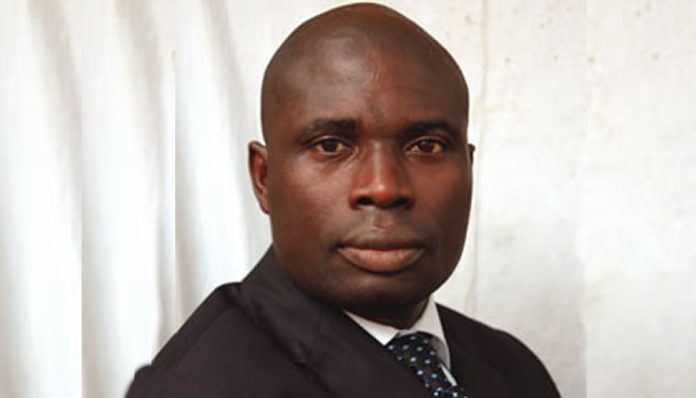There are things you learn when you have been in journalism for more than 25 years and a columnist for over 15. You learn to watch the horizon long enough to comment sensibly. I suppose it is one reason some call to say that while they don’t agree with me, they see the point I’m making. And no one has ever accused me of writing what didn’t happen. Not everyone would agree with your view, but at least you speak to facts rather than make up stories just to express some primordial sentiments. This is what I do here regarding the failed naira redesign policy and the Finance Minister, Budget and National Planning, Zainab Ahmed, who should have been carried along but was left out of it.
The excruciating pains brought upon Nigerians through this horribly executed measure I had already stated here several times. This time I comment on the approach of many in official positions to policy measures in this nation. My summary is that the naira redesign policy follows the usual muddling through that those we consider professional, those trained to know better have always engaged in. I find it baffling that some would consider that a policy that affected the whole nation should be adopted, but the initial discussion around it should be only between the Central Bank of Nigeria and the presidency. The policy was treated as if it was some secret operation surrounding the use of atomic bombs in WWII.
When news broke that there would be a naira redesign, Ahmed was asked about it. She said part of the reasons the CBN gave was to mop up liquidity to manage inflation, but “there are also consequences. We are also looking at what the consequences will be. There will be some benefits but there are some challenges. I don’t know if the monetary authorities have looked closely at what the consequences are and how they can be mitigated.” She advised that such discussion should take place with the monetary authorities.
All that I state here are what I discussed in conversations in the period the naira redesign policy lasted. I waited for this long to raise the angle of the finance minister to it because I decided to see if my initial misgivings over the manner she was left out of it would prove right. It’s been proved right. The consequences she warned about happened – Nigerians were made to suffer, and the policy still failed. After she made her view known, the CBN issued a dismissive statement saying she didn’t have to be informed. The presidency issued a similar statement. There then followed the “public affairs analysts.” I watched a few on TV, but I was hearing voices that abandoned commonsense to talk bizarrely about norms and traditions of how such a measure should be undertaken with only the CBN and the presidency being in the know.
These analysts didn’t see any use in ensuring the finance minister was carried along. I heard voices that seemed more eager to praise their tribesman who took the decision more than they were about mitigating the disastrous consequences if the policy wasn’t thought through. I heard people who seemed to have benefited from institutions linked to the CBN, or hoped to benefit, talking as analysts. Not once did I hear a voice point out the peculiarity of our situation, the lack of adequate infrastructure needed, and the need for all heads to be at the same table to look at the challenges and the benefits. Nothing was said about the impractical step of shutting out the cabinet member in charge of finance, budget and planning. No one suggested that issues of “consequences” that the finance minister talked about should be looked at before any implementation. Everyone spoke what would please whoever their patrons were at the CBN.
Now, the naira redesign issue affected me so I intervene as a Nigerian who has been impacted. I was paying as much as 40 per cent to get cash in the period that the failed policy lasted. I hear some say the policy has benefits but it was badly executed. That’s deferring to a bad policy. A policy that dehumanised Nigerians as the naira redesign did doesn’t deserve even a grudgingly awarded credit. Policy measure is about people, it’s for the benefit of the people. A policy that makes life difficult for Nigerians isn’t worth a mark. It should be marked down, whether or not it’s targeted at stopping money from being used in elections.
There are a few things I wonder about regarding the naira redesign saga. If there was a small economic team like there was between 1999 and 2003 that advised on economic matters, would the finance minister not be a member? Would the team not have been informed of the naira redesign and its advice sought? Would wider consultations not have been necessary to ensure that the impacts of steps to be taken were considered? It seemed the CBN wanted to implement this policy like it was just one person trying to keep a secret from the rest of us. There was such a huge policy but members of cabinet wouldn’t be notified and their views sought. What was really going on in the mind of those who hatched the plan that it seemed they were afraid to have even members of the highest decision making body hear of it before it was announced?
Why was the plan mooted and kept the secret of a few until it was announced? Which nation handles a serious economic matter in this manner – announce the redesign of their currency as though it was a secret weapon that enemies weren’t meant to be aware of|? Was the finance minister the enemy of anyone in the cabinet? Who had a plan to execute such that they were afraid that her views would stop them from executing it? Doesn’t this last outing on naira redesign further shed light on the disconnect in the manner this nation runs its government? There was a national issue but some in government believed only the CBN and the President should be aware of it, thus guaranteeing absolute lack of coordination. Which nation operates that way?
The finance minister has kept quiet in the time the naira redesign saga lasted. In the end though, those who said it wasn’t necessary to inform her did her a favour; they distanced her from a policy that had left reputations of everyone involved in tatters. Back in 2015 when Ahmed was appointed into the cabinet, I wrote on this page, “What Zainab Ahmed told me,” even though I never met her before then. All I knew of her was her task at the Extractive Industry Transparency International where she made transparent what was happening in the nation’s extractive industry that was riddled with corrupt practices. I had stated that with her antecedent she was an excellent choice among the cabinet members to work with the President at the highest level. When she was elevated from minister of state to minister of finance, budget, and national planning, I concluded that the President had even greater belief in her than I had imagined.
Ahmed came to office with the President exhibiting the belief that she could be trusted with the nation’s finances. He must also have thought of her as a government official who would do the right thing. Ahmed wanted the right thing done so she advised there should be more discussions over the consequences of the naira redesign policy. Those who thought they had an opportunity to swarm and buzz over another northerner said she was wrong.
Now we know who’s wrong, and they have simply justified her. They justified my belief in her. They justified the President’s trust in her. Even lawmakers did, as they said recently that she wasn’t found wanting in any way regarding some of the fund-related issues involving agencies of government. Ahmed is leaving the office as impeccable as she was when she arrived. Those whose misadventures serially put Nigerians in pain can go on to deal with the consequences on their reputation.
Share your story or advertise with us: Whatsapp: +2347068606071 Email: info@newspotng.com












